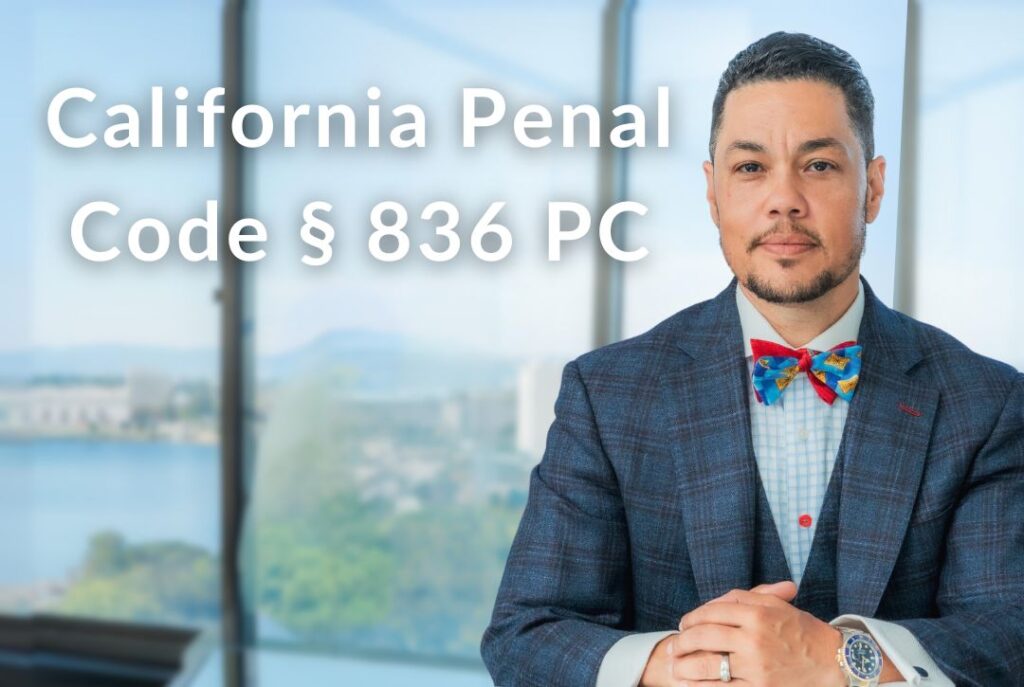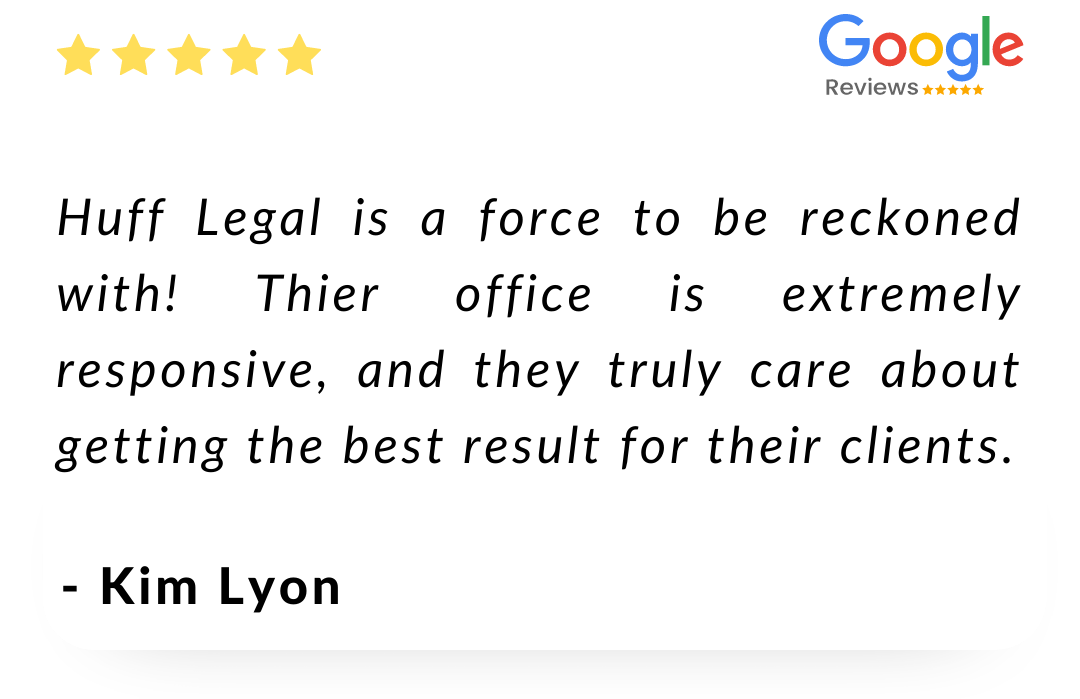California Penal Code § 836 PC – Warrantless Arrests: A Useful Guide
California Penal Code § 836 PC – Warrantless Arrests
In California, police can arrest you without a warrant under certain circumstances, as outlined in Penal Code § 836 PC. The situation can be alarming and leave you feeling vulnerable, especially if you’re unsure about the legality of the arrest.
You may find yourself questioning whether the police have the right to arrest you without a warrant and what your rights are in such a scenario. Many people wonder, “When can the police legally arrest me without a warrant in California?”
This article will delve into the specific conditions that allow for warrantless arrests under Penal Code § 836, providing you with a clear understanding of your rights and what to expect if you find yourself in this situation.
Understanding PC 836
California Penal Code 836 outlines the circumstances under which police officers can make warrantless arrests. The statute empowers officers to arrest you without a warrant if they have probable cause to believe you committed a felony, certain misdemeanors or violated a domestic violence restraining order. Understanding your rights under PC 836 is important to protect yourself in case of a warrantless arrest.
Reasonable Cause Arrests
Under PC 836, an officer can arrest you without a warrant if they have “reasonable cause” or “probable cause” to believe you committed a crime. Reasonable cause means the officer has a strong and honest suspicion of your guilt based on specific facts indicating unusual or suspicious activity related to a criminal act. The officer must be able to articulate these facts to justify the arrest, even if they don’t have absolute certainty of your guilt.
- Reasonable cause is more than a mere hunch but less than the “beyond a reasonable doubt” standard needed for conviction.
- The officer must be able to point to specific facts, not just feelings or intuition, to support their suspicion.
- Reasonable cause can be based on the officer’s observations, information from reliable sources, or a combination of factors.
- If an officer lacks reasonable cause for an arrest, the arrest may be unlawful, and the charges could be dismissed.
Request a Free Consultation
Misdemeanor Exceptions in California
Generally, officers can only make warrantless misdemeanor arrests if the offense occurred in their presence. However, there are numerous exceptions to this rule in California. Officers can arrest you for a misdemeanor they didn’t witness if it involves:
- Domestic violence
- Violation of a domestic violence restraining order
- Assault or battery on a spouse, cohabitant, or parent of your child
- Driving under the influence (in some cases)
- Carrying a loaded firearm in public
- Assault or battery on an elderly person by a caretaker
- Assault or battery on school grounds
- Assault or battery on a firefighter, EMT, or paramedic on duty
- Carrying a concealed weapon in an airport
- Any misdemeanor committed by a juvenile.
Is a Misdemeanor Arrest Legal If the Officer Saw Nothing?
If the alleged offense falls under one of the exceptions listed above, an officer can legally arrest you for a misdemeanor even if they didn’t witness it. However, if the offense doesn’t fit these categories, the arrest may be unlawful under PC 836.
In such cases, an experienced criminal defense attorney can challenge the arrest’s legality and potentially get the charges dismissed.
It’s important to note that even if an officer violates the “in presence” requirement for misdemeanors, you likely can’t suppress the arrest as a 4th Amendment violation. Nonetheless, understanding your rights under PC 836 can help you identify and challenge improper warrantless arrests with the assistance of a skilled lawyer.
Being an accessory to murder can be charged as either a misdemeanor or a felony, depending on the case’s specific circumstances.
"Probable Cause" in California – Examples Where It Applies
Probable cause is a legal standard that justifies certain police actions, such as traffic stops, detentions, arrests, and search warrants. It requires more than a mere suspicion but less than the “beyond a reasonable doubt” standard needed for conviction. Here are some examples of when probable cause applies in California:
When can police stop you for a traffic violation or detain you?
Police can stop your vehicle if they have reasonable suspicion that you committed a traffic violation or are engaged in criminal activity. Reasonable suspicion is a lower standard than probable cause, requiring only specific, articulable facts that criminal activity may be afoot. Once stopped, police can detain you briefly to investigate further.
What standard applies to an arrest?
To arrest you, police must have probable cause to believe you committed a crime. This means they have a reasonable belief, based on facts and circumstances, that you are more likely than not engaged in criminal activity. Probable cause is a higher standard than reasonable suspicion but lower than the proof needed for conviction.
What about search warrants?
To obtain a search warrant, police must present probable cause to a judge. The warrant application must describe the place to be searched and the items to be seized, and the judge must find a “fair probability” that evidence of a crime will be found there. Probable cause for a warrant can be based on police observations, informant tips, or other reliable information.

As Seen On












How Long Can Police Detain You on a Traffic Stop?
During a traffic stop, police can detain you only for a reasonable time to address the purpose of the stop. This typically includes checking your license and registration, running a warrant check, and issuing a citation or warning. The detention should not last longer than necessary to complete these tasks, usually no more than 15-20 minutes.
However, if police develop reasonable suspicion of other criminal activity during the stop, they may prolong the detention for a reasonable time to investigate further. If their suspicion rises to the level of probable cause, they can arrest you or search your vehicle, depending on the circumstances.
Get the Legal Help You Need
If you or a loved one has been arrested without a warrant under 836 PC, don’t hesitate to contact Huff Legal for a confidential consultation. Our skilled attorneys will review your case, explain your options, and fight tirelessly to defend your rights in and out of court.
With our expertise in criminal defense and commitment to justice, you can trust Huff Legal to be your strongest advocate during this challenging time. Call us today for a FREE consultation.
FAQ
What does PC 836 mean?
PC 836 is a California law that allows police to arrest someone without a warrant under certain circumstances, such as when the officer has probable cause to believe the person committed a felony or certain misdemeanors. It outlines the legal requirements for warrantless arrests in California.
What is the 836 police code?
836 police code refers to California Penal Code Section 836, which authorizes police officers to make arrests without a warrant in specific situations. This code gives officers the legal authority to take someone into custody based on probable cause, even if they didn’t witness the crime themselves.
What is the 836.5 PC in California?
836.5 PC is a related statute that allows public officers or employees, when authorized by ordinance, to make warrantless arrests for misdemeanors committed in their presence. This applies to violations of statutes or ordinances that the officer or employee has a duty to enforce.
What is the 836 D Penal Code?
836(d) PC is a subsection of the warrantless arrest law that specifically addresses domestic violence situations. It allows officers to arrest the suspect without a warrant or a private person’s arrest if they have probable cause to believe the suspect committed assault or battery against a spouse, cohabitant, or other intimate partner.
What Clients Say About Us





Schedule Your Free Consultation Today
LET HUFF HELP YOU
As a former police officer and patrol supervisor and his time spent as a United States District Court Judicial Law Clerk to the Chief Judge, Attorney Huff knows how to navigate all levels of the complex criminal law system. We also have more than 55 years of combined experience dealing with various complex criminal legal matters and have helped just over 1,500 clients over the past few years.
Why Huff Is Your Best Option For Criminal Defense
55+ Years of Combined Experience
At Huff Legal, we have more than 55 years of combined experience dealing with complex criminal legal matters, which can oftentimes be quite challenging. In order to get the outcome you deserve, you need a team of experienced attorneys on your side, who can help you navigate the legal system, so you can move past this situation and focus on the life ahead of you!
5 Star Rating on Google
We have a proven track record of success and are dedicated to our clients’ best interests. If you’re looking for a law firm that will always have your back, look no further than Huff Legal. Just have a look at some of our amazing client reviews over here!
1,500+ Happy Clients
Over the years, we’ve had the privilege of helping over 1,500 clients with their legal needs. When you work with us, you can be confident that you’re getting the best possible legal representation. We’re proud of our track record and our reputation for being a firm that delivers great results.
What Our Clients Say About Us


Sheila


Abel Resendiz


Manuela Frazier


Doris
Contact Huff Today
Request A Free Consultation
* Free consultations only available for Criminal Defense


In legal terms, an accessory to murder refers to an individual who aids, abets, or otherwise assists in committing a murder. While the specifics may vary across jurisdictions, California law treats accessories to murder as active participants in the crime, holding them accountable for their actions. In San Francisco Bay Area, there are two primary types of accessories to murder:
In the event that you find yourself in the Bay Area facing accessory to murder charges, you should first call a criminal defense attorney who can help you defend your rights and lessen the effects of the investigation. Contact an attorney at Huff Legal as soon as possible following your arrest. An accomplished attorney from Huff Legal will thoroughly examine your case, who will then develop a strategy and build a defense.
